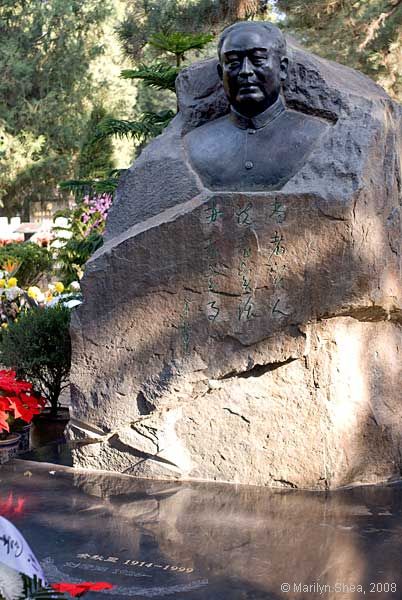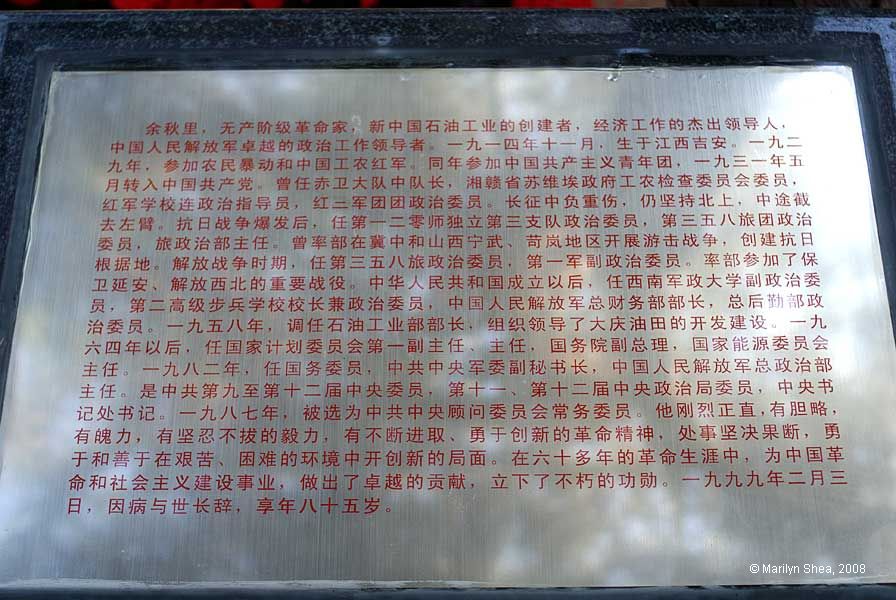 |
| Yu Qiuli 余秋里 (Yú Qiūlǐ, 1914 - 1999) was born to a peasant family in Ji'an County, Jiangxi Province. From that unlikely beginning he made it to the top echelons of the Communist Party and government.
When Yu Qiuli was born, the Qing Dynasty had just been overthrown. The new government had yet to take control of the country and the old landowners and government structures were in place throughout the country. By the time that Yu Qiuli was 14 he had participated in a peasant uprising, the kind of revolts that were occurring throughout the country as locals sought to remove the last of the Qing Dynasty structures. Within two years he had joined the Communist Party. By then, the fight was not just against the old warlords, but between the Guomindang and the Communists. The unifying force of Sun Yatsen ended at his death in 1925. By 1934, the Communist Red Army was under attack. The Nationalists, the Guomindang, were determined to win the civil war and drive the Communists out, To escape the Guomindang, the Red Army began the Long March from Jiangxi in the southeast to Shaanxi in the north. A tenth of the army survived the journey and reached Yan'an in Shaanxi and Yu Qiuli was one of the survivors. During the Long March a wound in his arm could not receive proper medical attention and after they reached Shaanxi it had to be amputated. He moved into administrative and training positions. Following the victory of the Communists, he became head of a military training academy. He was a skilled administrator and by 1958 was appointed to head the Ministry of the Petroleum Industry (MPI). A year later oil was discovered in Daqing. Yu's successful development of the area turned his ministry into a powerhouse. He weathered the dangers of the Cultural Revolution with the support to Zhou Enlai and emerged with bright prospects. In 1975, he was appointed deputy prime minister and in 1976 joined the membership of the Politburo. He joined the struggle for the future direction of China on the conservative side, opposing Deng Xiaoping's more open economic views. As Deng became dominant, Yu was given a less influential post. However, Deng called upon him in 1982 to head the General Political Department of the military. This office is central to the maintenance of party policies within the military. While they disagreed on economic policy, Deng trusted him to move the military into a moderate position. Yu Qiuli retired from the Politburo and other administrative posts in 1987 at the age of 73. |
 |
http://hua.umf.maine.edu/China/Babaoshan/index.html
Last
update: July 2009
© Marilyn Shea, 2009